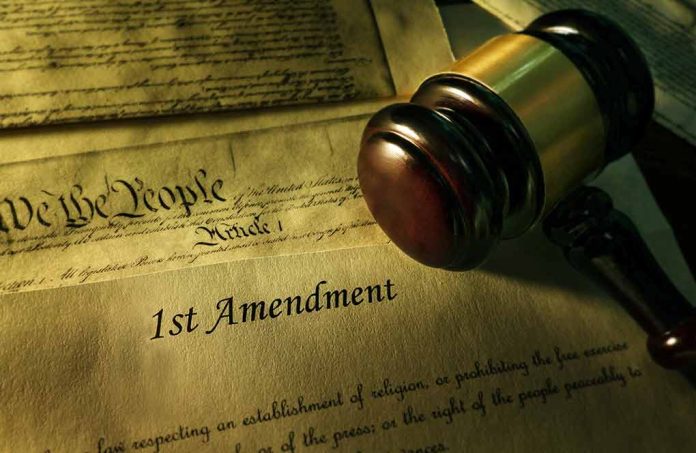
A federal judge has ruled the Trump Administration unconstitutionally banned the Associated Press (AP) from White House events over a naming dispute about the Gulf of Mexico, highlighting tensions between legacy media and modern politics.
Top Takeaways
- US District Judge Trevor McFadden ruled the White House violated the First Amendment by banning AP from Oval Office events over its refusal to use “Gulf of America” instead of “Gulf of Mexico.”
- The judge, a Trump appointee, determined the ban constituted illegal viewpoint discrimination and ordered press access restored.
- The White House must now treat AP equally to other media outlets, though the order is delayed one week for potential appeal.
- The ruling reaffirms constitutional protections against government retaliation for press freedom.
Constitutional Clash Over Geographic Names
In a significant rebuke to the Trump Administration, US District Judge Trevor McFadden ruled that the White House violated constitutional principles by barring the Associated Press from Oval Office events. The dispute stemmed from the AP’s editorial decision to continue using “Gulf of Mexico” after President Trump issued an executive order renaming it the “Gulf of America.” McFadden, notably a Trump appointee, determined that excluding the news agency constituted unconstitutional viewpoint discrimination, a direct violation of First Amendment protections that safeguard press freedoms from government interference.
The White House had justified the ban by criticizing the AP for not adopting the presidential name change, with officials characterizing the news agency’s stance as divisive and misleading. However, the AP maintained its position was based on clarity and global recognition standards. The news agency filed its lawsuit in February after being excluded from presidential events that other media organizations were permitted to attend, arguing that such selective exclusion represented government retaliation against protected editorial decisions.
Judicial Response Reaffirms Press Protections
Judge McFadden’s ruling delivered a clear message about constitutional boundaries, stating that “The Government offers no other plausible explanation for its treatment of the AP. The Constitution forbids viewpoint discrimination, even in a nonpublic forum like the Oval Office.” The decision flatly rejected the administration’s claim that AP was seeking “extra special access,” instead finding that the White House had deliberately targeted the organization for its editorial stance. McFadden ordered the administration to restore AP’s press access, though he stayed the enforcement for one week to allow time for a potential appeal.
The ruling establishes an important precedent that government officials cannot exclude journalists based on disagreement with their reporting decisions or editorial policies. Press freedom advocates celebrated the decision as a vital protection against potential government overreach. The White House Correspondents’ Association added its voice to those praising the ruling, emphasizing the essential nature of media independence in American democracy.
Media’s Editorial Independence Upheld
At the heart of the dispute was the AP’s editorial guidance regarding geographic nomenclature. The news agency provided a clear rationale for continuing to use the historical designation while acknowledging the president’s desired change, stating, “The Gulf of Mexico has carried that name for more than 400 years. The Associated Press will refer to it by its original name while acknowledging the new name Trump has chosen. As a global news agency that disseminates news around the world, the AP must ensure that place names and geography are easily recognizable to all audiences.”
This case demonstrates the ongoing tensions between media organizations and government entities over press access and editorial independence. Judge McFadden’s decision reinforces that even when the government has discretion over press access to non-public forums, it cannot exercise that discretion in ways that punish organizations for their editorial policies or viewpoints.
Sources:
- Gulf of America Day, 2025
- Federal judge rules White House’s Associated Press ban unconstitutional for ‘viewpoint discrimination’
- Judge orders Trump White House to restore AP access
- Judge orders Trump administration to lift its ban on The Associated Press covering White House events




